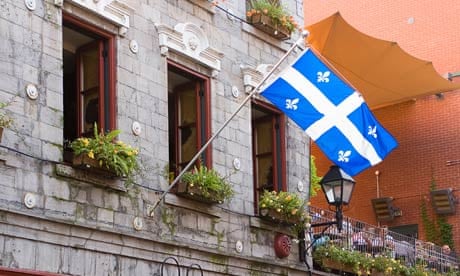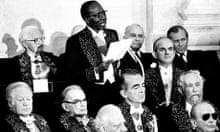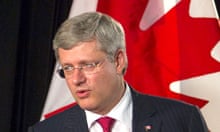They are known as the language police, a unit within the regional Quebec government that seeks to protect French from the rising tide of English. It deploys inspectors to rein in recidivist anglophones, take on big corporate transgressors such as Guess, the Gap and Costco and conduct spot checks to follow up thousands of public complaints.
Now, however, zealots in the Office québécois de la langue française (Quebec Board of the French Language) may have gone a step too far in picking a fight with an Italian restaurant known for its celebrity clientele including Bono, Rihanna, Leonardo DiCaprio, Jerry Seinfeld and Robert De Niro.
After a five-month investigation into an anonymous complaint, Massimo Lecas received a letter from the board telling him that his establishment, Buonanotte, had broken the law by including the words "pasta" on the menu and "bottiglia", the Italian word for bottle, instead of the French word bouteille.
Outraged, Lecas posted the letter for 2,500 of his Facebook friends to see. In doing so, he unleashed a political tempest over one of the most sensitive topics up for debate in the province. The outcry has forced the Quebec government to rein in its language inspectors, ensure exceptions to the rules are made for ethnic food and restaurant menus and order a review of how it handles public complaints. Anglophones and the many ethnic communities that call Quebec home are now celebrating a victory. French-language advocates and Quebec separatists, meanwhile, see signs of a campaign by a cabal of English-speakers in Quebec and across Canada to undercut what they view as the only tool to ensure that French thrives.
Lecas, who was born and raised in Canada's second-largest city, and who also speaks French, does not hide his linguistic frustrations. But he says this episode is no sinister plot. Rather, it is a perfect storm propelled by social media.
"I think that when they circled the word pasta that was the sensitive spot," he said. "It wasn't an anglophone thing so right away the francophones jumped in [to support the restaurant] because it was an Italian word."
Lecas's decision to go public with the letter from the language inspector has prompted other restaurateurs to come forward. One told how he was ordered to cover his microwave's on/off switch and the redial button on a telephone with tape because they were in English.
The chef's grocery list, which was written on a kitchen chalkboard, was also found to have broken the law: steak frites may be a staple of Parisian bistros but, according to Quebec law, biftek is the only acceptable term.
Maison Publique, the British-style gastropub in Montreal co-owned by Jamie Oliver, was also visited twice after a complaint. Inspectors arrived, took pictures inside the establishment but would not reveal the nature of the supposed language-law breaches.
Others have also come forward to describe their encounters with a government department that conducts its business like a spy agency and wields the powers of a top-court judge.
Sensitivity to any real or perceived crackdown on English-speaking entrepreneurs and businesses in Quebec has spiked since the election of the Parti Québécois last autumn. The party has led the province through two failed referendums on sovereignty since 1980 and is openly trying to build the conditions for a third vote to have the province separate from Canada despite historically low levels of support.
In the meantime, Quebec premier Pauline Marois is introducing a bill to apply French-first laws to small companies and to prevent towns and cities where the majority of the population is francophone from also offering services in English.
Her government's rallying cry that French remains threatened so long as it is surrounded by the cacophony of English voices in North America is undiminished. And in a period of severe cutbacks, Quebec's recent budget included one notable increase: the yearly allotment for the language police.







Comments (…)
Sign in or create your Guardian account to join the discussion